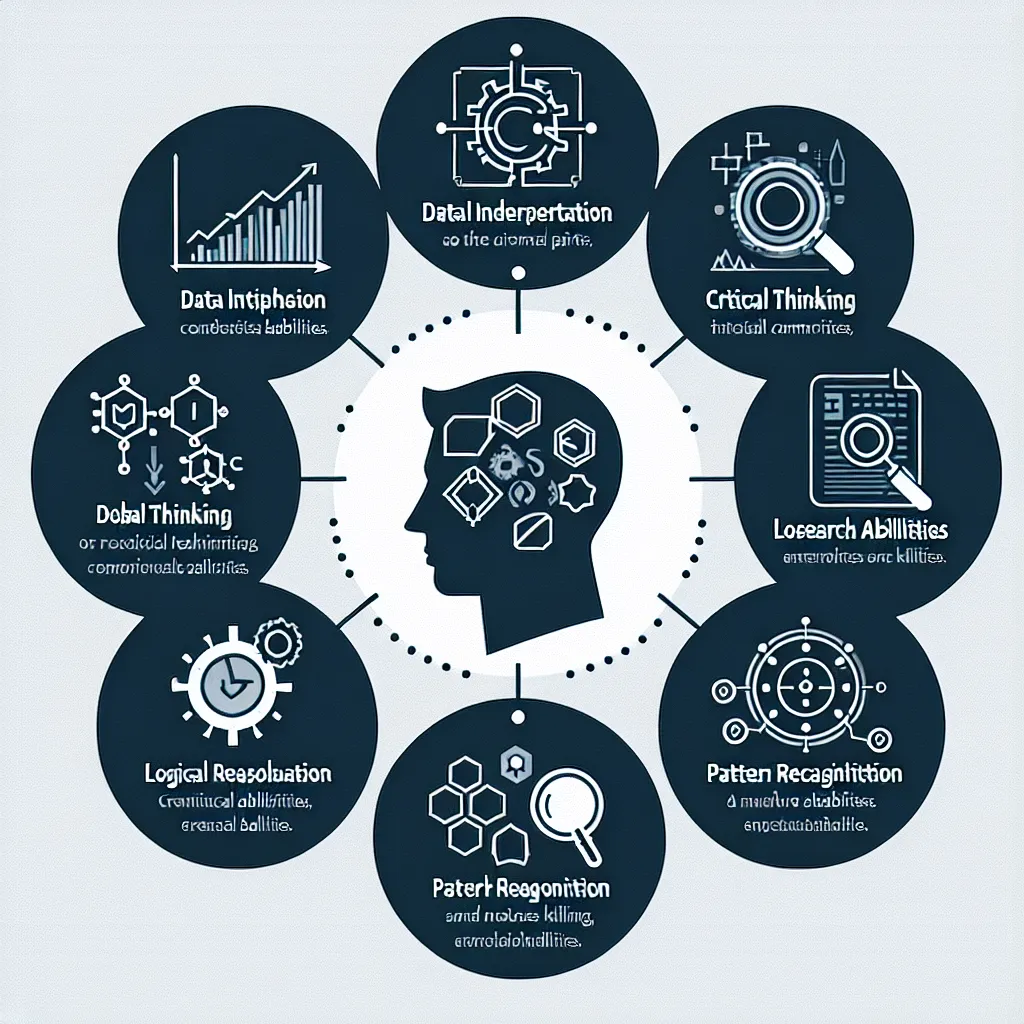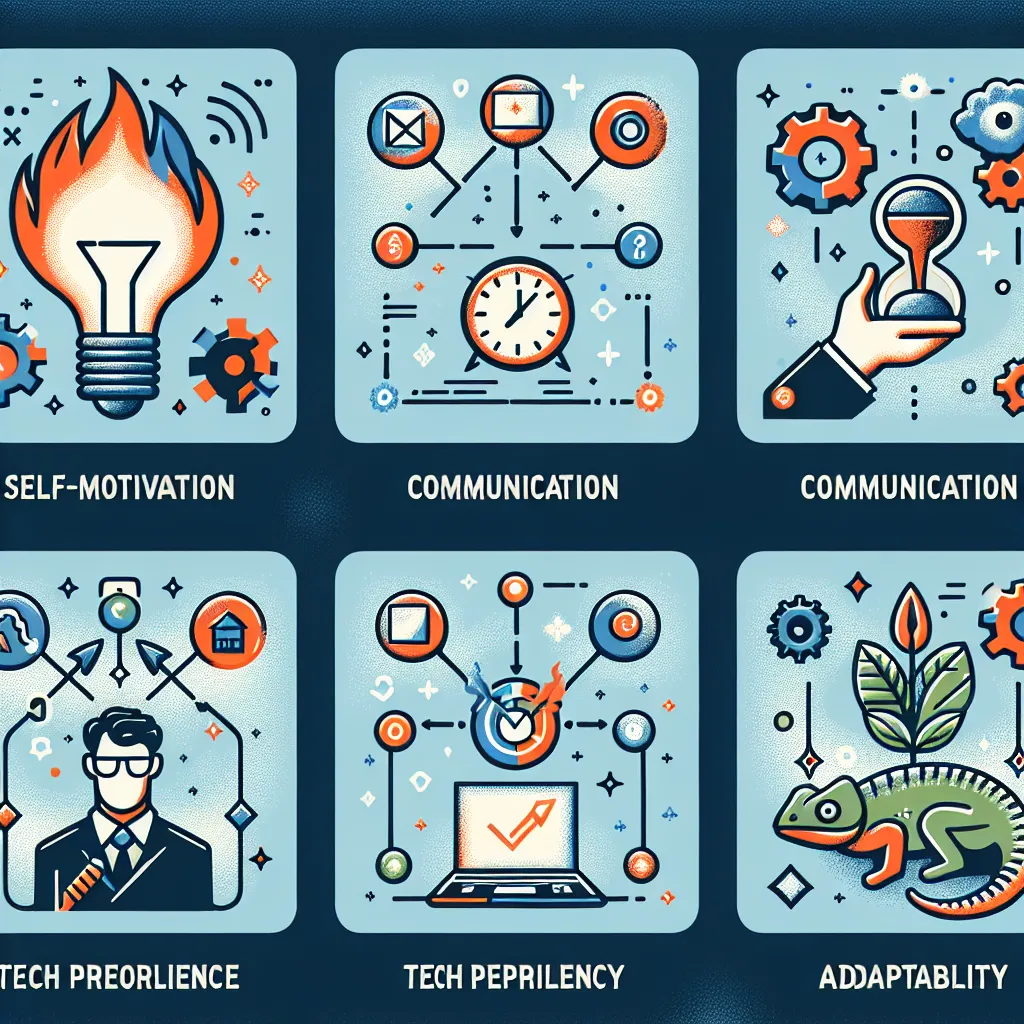In today’s competitive job market, possessing strong analytical skills is a valuable asset that can set you apart from other candidates. When preparing for an interview, it’s crucial to know how to effectively communicate your analytical abilities to potential employers. This guide will provide you with strategies and examples to help you showcase your analytical skills during the interview process.
Understanding Analytical Skills and Their Importance
Analytical skills refer to the ability to collect, organize, and interpret data to solve problems and make informed decisions. These skills are highly valued across various industries and job roles, as they contribute to improved efficiency, innovation, and problem-solving within organizations.
Key Components of Analytical Skills
- Data interpretation
- Critical thinking
- Problem-solving
- Research abilities
- Logical reasoning
- Pattern recognition
- Attention to detail
Employers often assess candidates’ analytical skills to determine their potential for contributing to the company’s success and growth.
 Analytical Skills Components
Analytical Skills Components
Preparing to Discuss Your Analytical Skills
Before your interview, it’s essential to reflect on your experiences and identify specific instances where you’ve applied your analytical skills. This preparation will help you provide concrete examples during the interview.
Steps to Prepare:
- Review the job description and identify analytical skills required for the position.
- List your relevant experiences and achievements that demonstrate these skills.
- Prepare specific examples using the STAR method (Situation, Task, Action, Result).
- Practice articulating your examples clearly and concisely.
Effective Ways to Showcase Your Analytical Skills
During the interview, use these strategies to effectively communicate your analytical abilities:
1. Provide Specific Examples
When asked about your analytical skills, offer concrete examples from your past experiences. Use the STAR method to structure your responses:
- Situation: Describe the context of the problem or challenge.
- Task: Explain your role and responsibilities.
- Action: Detail the steps you took to analyze and address the issue.
- Result: Share the positive outcomes of your analysis and actions.
Example response:
“In my previous role as a marketing analyst, we faced declining engagement rates on our social media platforms. I was tasked with identifying the root cause and developing a solution. I analyzed user data, engagement metrics, and content performance over the past six months. By identifying patterns in high-performing content and optimal posting times, I developed a new content strategy. As a result, we saw a 30% increase in engagement within three months.”
2. Highlight Your Problem-Solving Process
Explain your approach to problem-solving, emphasizing your analytical thinking process:
- Identify the problem
- Gather relevant data
- Analyze information
- Generate potential solutions
- Evaluate options
- Implement the best solution
- Monitor and adjust as needed
3. Demonstrate Quantitative Skills
Showcase your ability to work with numbers and data by incorporating relevant statistics and metrics into your responses. This demonstrates your comfort with quantitative analysis.
Example:
“I implemented a new inventory management system that reduced stockouts by 25% and decreased carrying costs by 15%, resulting in an annual savings of $100,000 for the company.”
4. Discuss Tools and Technologies
Mention any relevant analytical tools or software you’re proficient in, such as:
- Excel or Google Sheets
- SQL
- Tableau or Power BI
- SPSS or R
- Python or other programming languages for data analysis
5. Emphasize Continuous Learning
Highlight your commitment to improving your analytical skills by discussing:
- Recent courses or certifications in data analysis
- Participation in workshops or webinars
- Self-study initiatives in analytical techniques
Common Interview Questions About Analytical Skills
Be prepared to answer these frequently asked questions:
- “Can you describe a time when you had to analyze complex data to solve a problem?”
- “How do you approach decision-making when you have limited information?”
- “Tell me about a time when your analysis led to a significant improvement in a process or outcome.”
- “How do you ensure the accuracy of your analysis?”
- “Can you explain a complex concept or finding to someone without a technical background?”
 Interview Preparation
Interview Preparation
Tips for Handling Challenging Questions
Sometimes, you may encounter questions that are outside your immediate knowledge or experience. Here are some strategies to handle such situations:
- Stay calm and composed.
- If you need clarification, don’t hesitate to ask for it.
- If you’re unsure about a specific detail, be honest and explain how you would go about finding the information.
- Relate the question to a similar experience or skill you possess.
- Demonstrate your problem-solving approach even if you don’t have the exact answer.
Example response:
“While I haven’t encountered that specific scenario, I have experience with similar analytical challenges. My approach would be to first gather all available data, consult with relevant team members or experts, and then apply appropriate analytical techniques to derive insights and potential solutions.”
Common Mistakes to Avoid
When discussing your analytical skills, be careful to avoid these common pitfalls:
- Being too vague or general in your examples
- Overemphasizing technical skills without demonstrating practical application
- Failing to show how your analytical skills contributed to tangible results
- Neglecting to mention collaborative aspects of analytical work
- Not adapting your language to your audience’s level of technical understanding
To overcome these mistakes:
- Practice articulating your experiences clearly and concisely.
- Focus on the impact of your analytical work, not just the process.
- Highlight both individual and team contributions in your examples.
- Be prepared to explain technical concepts in layman’s terms.
Follow-up Questions and Suggested Responses
Here are some potential follow-up questions with suggested response strategies:
-
Q: “How do you handle conflicting data or information in your analysis?”
A: Explain your process for verifying data sources, cross-referencing information, and resolving discrepancies. Emphasize your attention to detail and commitment to accuracy. -
Q: “Can you describe a time when your analysis led to an unexpected conclusion?”
A: Share an example where your analytical skills revealed surprising insights. Highlight how you communicated these findings and their impact on decision-making. -
Q: “How do you stay current with new analytical techniques and tools?”
A: Discuss your continuous learning habits, such as following industry publications, participating in online courses, or attending relevant conferences. -
Q: “How do you balance the need for thorough analysis with time constraints?”
A: Explain your prioritization skills and ability to scope analysis appropriately based on project requirements and deadlines. -
Q: “Can you give an example of how you’ve used data visualization to communicate complex information?”
A: Describe a situation where you created effective visual representations of data to convey insights to stakeholders.
Conclusion
Effectively communicating your analytical skills during an interview is crucial for demonstrating your value as a potential employee. By preparing specific examples, highlighting your problem-solving process, and showcasing your ability to derive actionable insights from data, you can leave a lasting impression on your interviewers.
Remember to tailor your responses to the specific role and company, and always be prepared to discuss how your analytical skills can contribute to the organization’s goals. With practice and preparation, you can confidently showcase your analytical abilities and increase your chances of landing your desired position.
For more interview preparation tips, check out our related articles on how to answer “What are your greatest strengths?” in English and how to talk about achievements in an interview.




